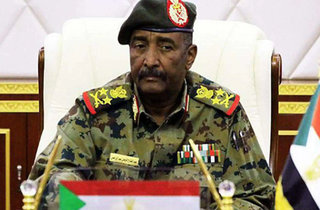His message was clear: no peace until the ongoing conflict, labeled by him as a "rebellion," is brought to an end.
Burhan's statement directly addressed internal divisions and cast blame on external actors. He lambasted those who "do not commit" and "search for weapons from outside the country," branding them "warmongers" responsible for prolonging the bloodshed. This seemingly targeted rival political factions and rebel groups who oppose the military's involvement in governance.
However, Burhan wasn't just critical. He extended praise to "armed struggle movements" that "united with the rest of the Sudanese," suggesting an openness to dialogue with certain groups involved in the conflict. This potential olive branch towards specific factions could be a strategic move to divide his opposition.
Furthermore, Burhan acknowledged a shift in the conflict's character. He acknowledged past peace efforts in Jeddah, but claimed they resulted in broken promises. This suggests a justification for a harsher approach, potentially raising concerns about further escalation.
His visit to Gedaref, where he inspected forces stationed in Al-Faw locality, further underscores the military's focus on the conflict. This visual display of strength could be interpreted as a message of resolve to both domestic and international audiences.
Burhan's speech is likely to ignite debate and reactions from various stakeholders. While some may view it as a necessary step towards resolving the conflict, others might see it as further entrenching divisions and hindering peaceful dialogue. The international community, already concerned about the situation in Sudan, will be closely monitoring developments. (ILKHA)



 Güncel
Güncel
 Güncel
Güncel
 Güncel
Güncel
 Dünya
Dünya
 Güncel
Güncel
 Güncel
Güncel
 Dünya
Dünya
 Dünya
Dünya
 Güncel
Güncel
 Dünya
Dünya





